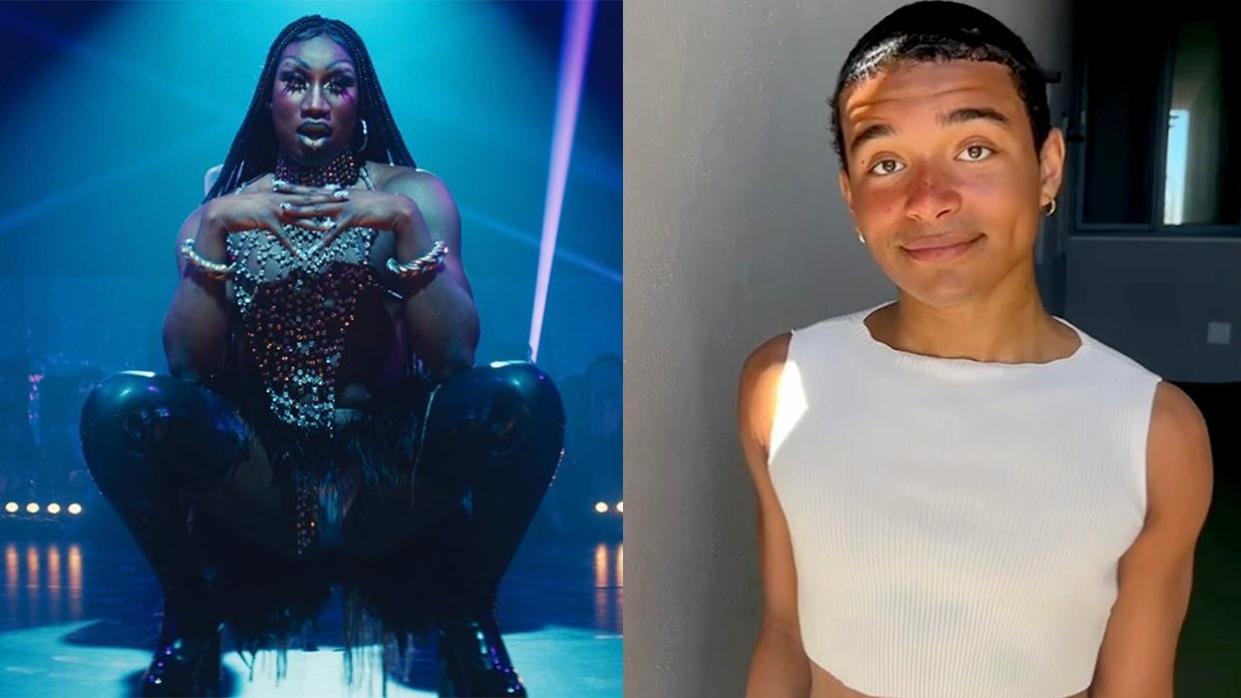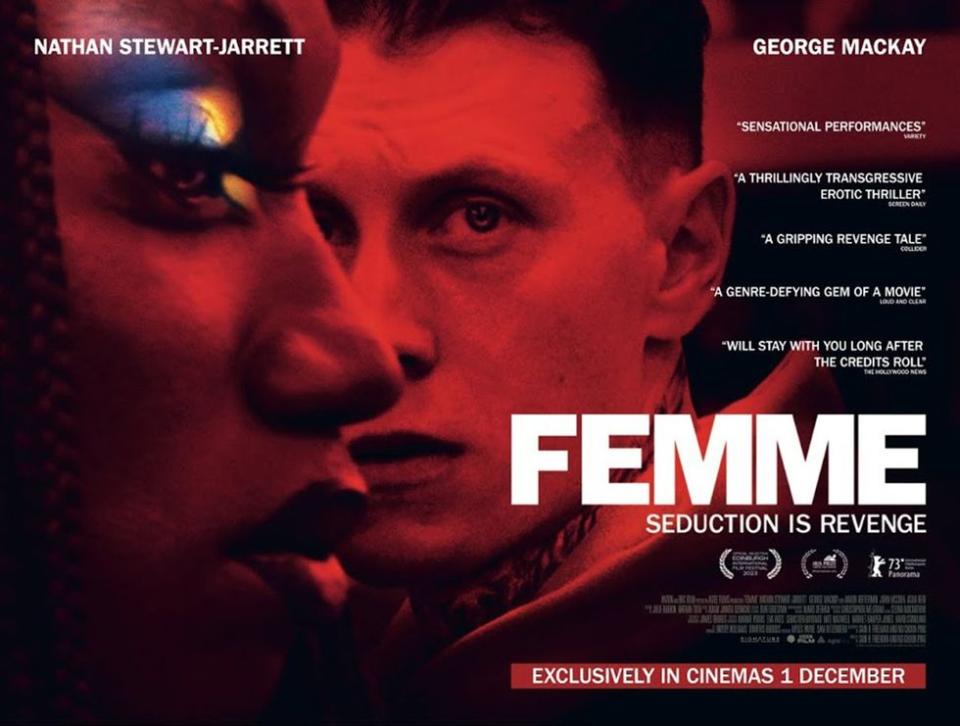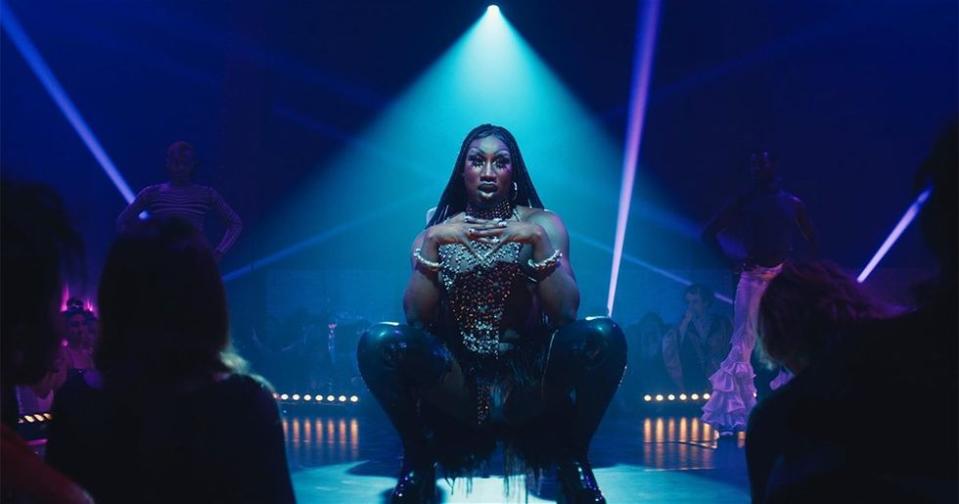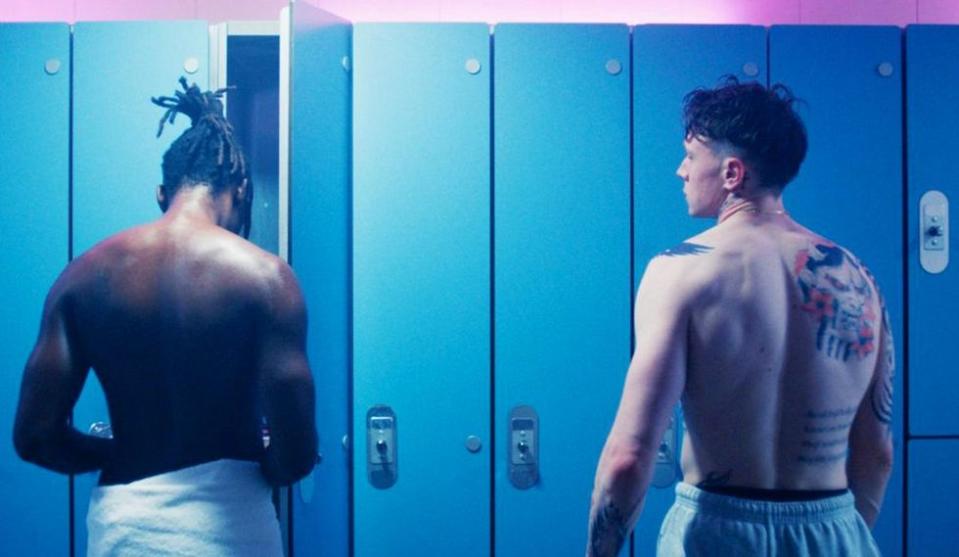Am I 'Femme'? Why Black queer people are more than our traumas

Am I femme?
This is a complex question I've often asked myself for years, and I've yet to come to a concrete answer. I've always enjoyed the forms of my expression that reflect femininity but was discouraged by the discourse surrounding it. I've felt the need to "choose my battles," in the sense that I've historically chosen to attempt to portray masculinity simply because it makes my life easier, but not because I enjoy it. Growing up, I didn't know or have Black femme men as examples or role models who embraced their femininity and weren't seen as weak. When I have no examples of myself in reality, it's then that I find a fictional reality to call home, and that home has always been film.
Rarely do I find Black queer characters in movies that allow me that much-needed relief. When consuming entertainment composed of characters like myself, it usually involves suffering through the typical tragedies attached to queer identity in the media. Following the release of the trailer for Femme, I thought I would finally witness a Black gay feminine man who reclaims the power taken from him. A movie that not only centers my identity but uplifts it with pride and power many Black queer individuals are restricted from.

Courtesy Agile Films
We meet Jules (Nathan Stewart-Jarret), our Black queer femme protagonist, as a confident drag queen. Following a trip to the local convenience store, he is the victim of a homophobic attack led by Preston (George MacKay), a white, masculine, "closeted" antagonist. The attack catapults Jules into an internalized battle to fight his demons and win back the confidence he once had. Following his assault, Jules tries to maintain his social relationships and remain true to his passion for the art of drag but again comes face-to-face with Preston, this time in the sexualized setting of a gay bathhouse. As I sat in the movie theater, prepared to watch what I hoped would be a pivotal moment for Black queer empowerment in film, I soon realized that I was sadly mistaken. The filmmakers decided to take a route for "revenge" that entailed Jules' in a sexually violent relationship with his abuser and concluded the film with Jules enduring a second graphic assault scene inflicted once again by Preston.
While watching Femme, whether I identify as a femme continued to invade my thoughts. However, after watching Jules portray the experience of femininity, I wondered if this was a reflection of my future. Would embracing my femininity leave me open to assault and my demise?
Reflecting on the way I pursue romantic relationships and the anxiety I feel in social environments; they're all connected to the complexities I've encountered as I progress through the course of my early twenties as a Black queer individual. Throughout my teen years, validation was crucial to my sense of fulfillment. I wanted to be desired and not solely for sexual means. I longed to hold in the palm of my hand the opportunity for intellectual stimulation, the ability to digress from the aspects of my identity that people fear or misjudge.
Instead, grace myself with the most intense feeling of my fantasies: normality.
I've dreamt of having the power to have my character — the achievements and qualities that embody my individuality — analyzed by people through informed opinions. For as long as I can remember, I questioned whether I presented myself in a professional environment with enough masculinity to be taken seriously while simultaneously conveying enough of a feminine tone not to be stereotyped as the "angry black man."
I've relied on entertainment for relief from reality.
When I find the escapism, through entertainment, I'm no longer the Black femme that people attempt to understand; I'm nothing at all. My identity becomes irrelevant, and I reach the state of normality I've grown up desiring most. This state of normality I experienced through movies was absent as a Black queer viewer of Femme. I struggled to identify and empathize with the protagonist. I don't believe Black queer viewers wish for yet another film that force-feeds them their trauma on camera.

Courtesy Agile Films
The historical trauma of the queer community is rooted in our culture and represented in our identities. For queer people of color, these intersectional components add another layer to our navigation of everyday life. Black queer men are often deemed powerless in the patriarchal view of manhood. The homophobia expressed by some Black men, in particular, stems not only from intolerance of same-sex attraction but the belief that a femme or submissive Black man who willingly submits to another man is a disgrace to Black male identity. Through their minds, we have forfeited one of the few privileges we have in this world: the acclaim and power that comes with being the modern-day staple of masculinity.
Is Jules a role model and revenge seeker or a character used as a device for his abuser's sexual fulfillment? I've felt lesser at specific points in my life due to the real-life portrayal of characters like Preston. Insecure men like Preston believe masculinity is the championing characteristic that defines self-worth. I've witnessed the portrayal of masculine personas by secretly queer men as if it's a testament to their value without acknowledging the real power of confident, feminine men they seek out with shame.
There's no power in asserting dominance when it can only be exercised by the acceptance of a willing feminine or submissive individual.
Am I Femme? Do I even want an answer to this question knowing the pain it can cause? I know that I refuse to be placed into a heteronormative relationship that negates my identity and restricts my abilities to fulfill the romantic role I am born to have. In all honesty, Jules reminds me of the weakest version of myself, a role that I've played and conformed to societal expectations of what a gay feminine man must be in a relationship: weak and submissive.
My viewing experience unfolded uncomfortably as I watched Femme. I expected to see revenge and to see Jules take power back from Preston. This revenge never came, and with revenge out of the plot, we are left with a Black gay lead character who has submitted sexually to his white male abuser. Preston has conditioned Jules to believe that a new form of abuse, his violent and degrading sexual acts against Jules, are acceptable because Jules has become complicit. What message does this film offer Black queer people, especially Black femme youth?
I've spent most of my life desiring normality as seen from the perspective of others, primarily from cis-het white individuals. Not until now have I realized that normality is subjective, and the feelings that stem from my identity are my "normal," which I should be content with. As I watched the painful degradation of Jules, I was swarmed with thoughts and reflections on my own relationships, most of which included a white man. I was consistently insecure with the dynamics of my masculinity and femininity, questioning aspects of myself that I love most, further sentencing me to a life of weakness and prohibition from feeling safety in romance.

Courtesy Agile Films
Jules is the fictionalized replica of myself that I've feared most – a look into my life if I allowed degradation into a romantic relationship simply because my lover catered to my femininity. I couldn't "leave my body" while watching this film, knowing that, in reality, I've endured these aggressive expressions of hate disguised as love. By the film's end, I was prouder than ever to state I'm feminine because my femininity does not match what Jules has exemplified on screen. My confidence grew exponentially, knowing that, unlike Jules, my femininity has power.
For the first time, I preferred my normality as I watched a movie that I believed would empower me. The enjoyment I found in escaping through the dreams of someone else's life is no longer pleasurable.
I'm definitely femme, but I refuse to be Femme.
Warren Small is a gay Black, Biracial undergraduate student in the Washington, DC area concentrating his studies on the intersectional topics of Politics, Gender & Sexuality, and Race. His writing includes both personal narratives and opinions where he hopes to create discourse and discussions on the topics integral to his identity and the complexities of navigating life as a Black queer individual. Upon completing his undergraduate degree, he hopes to attend Law School and further his professional career as an attorney advocating for LGBTQ+ issues and produce further scholarship in academia.
Have an inspiring personal story to tell? Want to share an opinion on an issue? Learn more by visiting pride.com/submit.
Views expressed in PRIDE’s Voices articles are those of the writers and do not necessarily represent the views of PRIDE.com or our parent company, equalpride.

